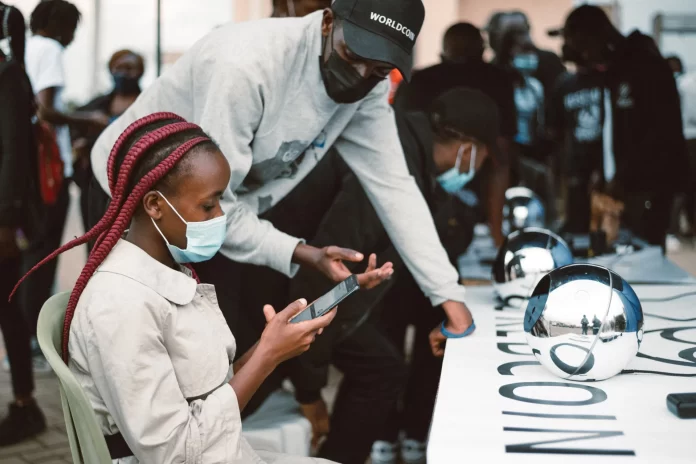In the bustling tech landscape of Kenya, Worldcoin, a cryptocurrency project founded by US tech entrepreneur Sam Altman, has stirred both excitement and controversy. The project offers free crypto tokens to users who willingly undergo an unconventional process – scanning their eyeballs. However, this move has raised significant data privacy concerns and triggered a government crackdown.
Thousands of Kenyans have been lining up at registration centers to get their hands on the digital currency, valued at around $49 each. Despite the allure of quick cash, the Communications Authority of Kenya issued a stern warning to citizens, urging caution when giving their data to private companies.
The concerns cited by the authorities included the storage of biometric data, the practice of offering money in exchange for personal information, and the potential risks of placing vast amounts of sensitive data in the hands of a private entity.
As a result of these concerns, the Kenyan government ordered Worldcoin to halt the registration of new users and launched an investigation into the project’s authenticity and legality. The company has since expressed its willingness to collaborate with the government and implement crowd-control measures before resuming its operations.
Worldcoin’s ambitious goal is to create a global “identity and financial network” that would provide universal access to the global economy. However, experts question the need for such invasive methods of data collection, and privacy advocates worry about the potential misuse of the gathered iris scans.

The company insists that no data is stored, but critics remain skeptical about the extent to which user privacy is being protected. Kenya’s Office of the Data Protection Commissioner has called for increased vigilance from the public, demanding that Worldcoin adhere to the Data Protection Act of 2019.
The Kenyan Capital Markets Authority has also voiced concerns about the lack of regulation surrounding Worldcoin’s activities in the country. Under Kenyan law, individuals have the right to keep their personal information confidential and not be subject to unnecessary data collection.
Digital rights lawyer Mercy Mutemi believes that less intrusive methods can be employed to verify people’s identities without compromising their privacy. However, Worldcoin’s founder, Sam Altman, remains optimistic about the initiative’s potential to establish a universal basic income, funded by artificial intelligence, although the precise mechanism for achieving this remains uncertain.
Worldcoin’s choice to launch in Kenya was driven by the country’s thriving tech ecosystem and the growing number of Kenyans already engaged in cryptocurrency trading. However, the company is now facing a crucial test of its viability in the face of data privacy concerns and regulatory scrutiny.
As Worldcoin navigates the complex landscape of data privacy and government oversight, its success or failure in Kenya could set a precedent for similar projects worldwide. Ultimately, striking the delicate balance between innovation, financial inclusion, and safeguarding user privacy will determine whether Worldcoin can truly revolutionize the world of cryptocurrency and digital finance.





